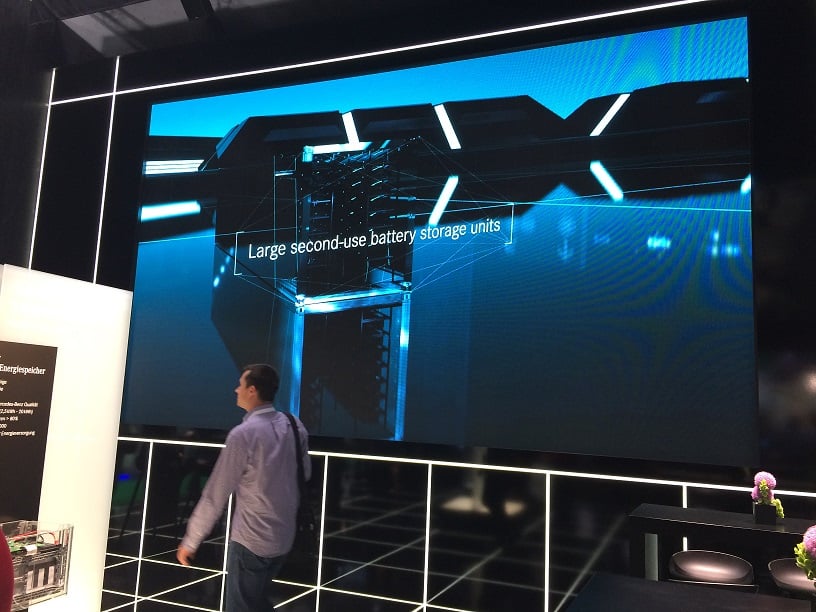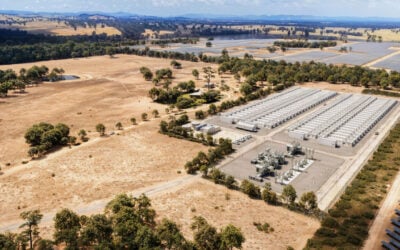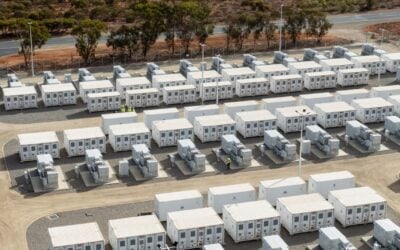
There will be no benefit to basing home energy storage systems on automotive batteries, in the medium or long term, a representative of Mercedes-Benz Energy has said.
In the past few days reports had emerged that parent company Daimler has taken the decision to exit the home energy storage market, into which Mercedes-Benz Energy had been introduced in early 2016.
The company began marketing systems based initially on “2nd Life” batteries, EV batteries repurposed for use in stationary storage, using modular batteries starting from 2.5kWh up to 20kWh, with larger commercial and utility systems on the way. A battery plant recently expanded by Daimler’s Accumotive battery production subsidiary was to be used to provide stationary storage batteries as well as EV batteries, which would be the main focus of the factory, in Kamenz.
At trade shows in Europe over the past couple of years, the Mercedes-Benz Energy stand has been easily among the largest and most colourful in any hall, while the division’s workforce was planned to be doubled each year. It was among the more expensive of home storage units, reported at around US$9,000 to US$10,000 retail when the company launched into the US market, led by former Sonnen US chief Boris Von Bormann.
Try Premium for just $1
- Full premium access for the first month at only $1
- Converts to an annual rate after 30 days unless cancelled
- Cancel anytime during the trial period
Premium Benefits
- Expert industry analysis and interviews
- Digital access to PV Tech Power journal
- Exclusive event discounts
Or get the full Premium subscription right away
Or continue reading this article for free
Daimler communications and PR manager Henry Schroeder confirmed the news to Energy-Storage.News this morning, saying that the Mercedes-Benz Energy subsidiary will be re-focused. Daimler is constantly reviewing its processes and the performance of its business units and the decision was taken as part of this ongoing work.
The strategy to utilise EV batteries, and also to leverage production and design processes from e-mobility to enhance the competitiveness of batteries used in stationary storage, was no longer being employed, Schroeder said.
“Even if different synergy effects are recognisable between automotive and stationary battery systems today, our current analyses show that the economic efficiency of home energy storage systems based on automotive battery systems will not exist in the medium and long term either,” Schroeder told Energy-Storage.News.
“In particular, the performance requirements of the highly complex automotive battery systems far exceed the values required for the home storage market.”
Daimler is not exiting the energy storage industry entirely. Schroeder said that the group will, however, focus “exclusively on the development and construction of stationary energy storage systems for grid applications,” which could include 2nd Life projects and storage systems constructed from spare battery parts as well as system utilising new batteries. It was not clear how much commercial emphasis would be placed on these projects, as Schroeder said this was part of Daimler’s “understanding of sustainability”.
Finally, Schroeder said that home energy storage systems would continue to be complementary to Daimler’s Mercedes-Benz EQ brand, the company’s “intelligent electric mobility” division, using “selected cooperation partners”. The spokesman said however that no details of any such partnerships or future sales models could be discussed at this time.






